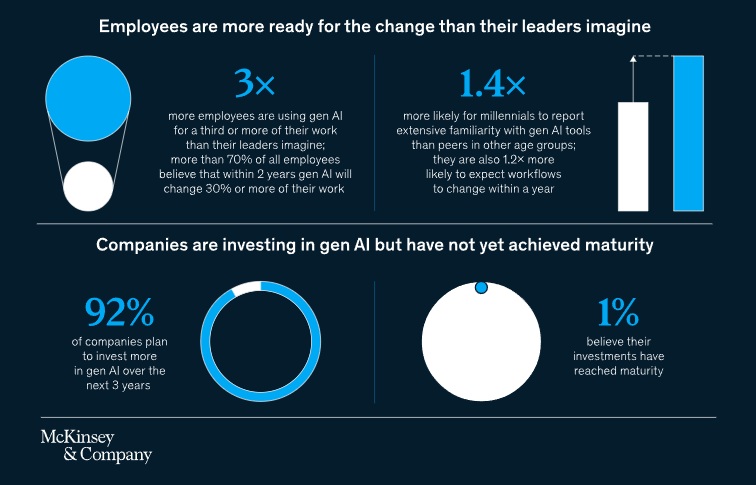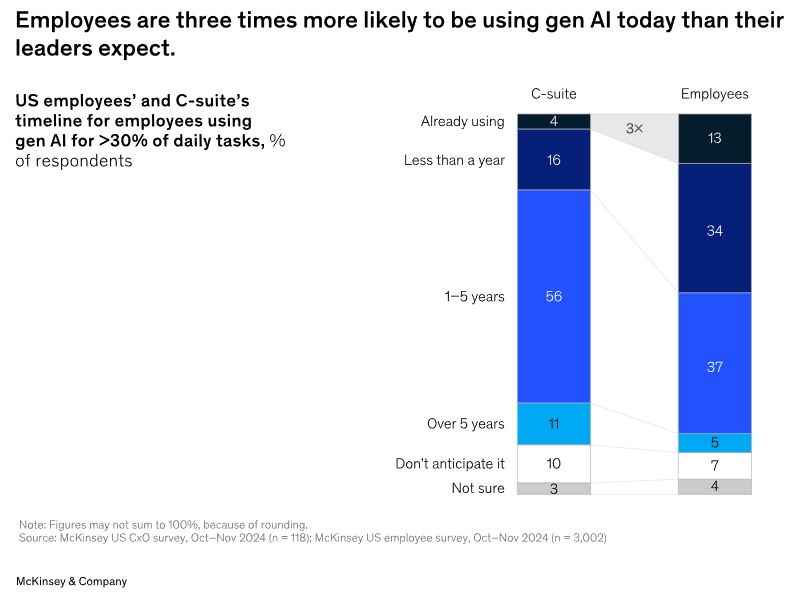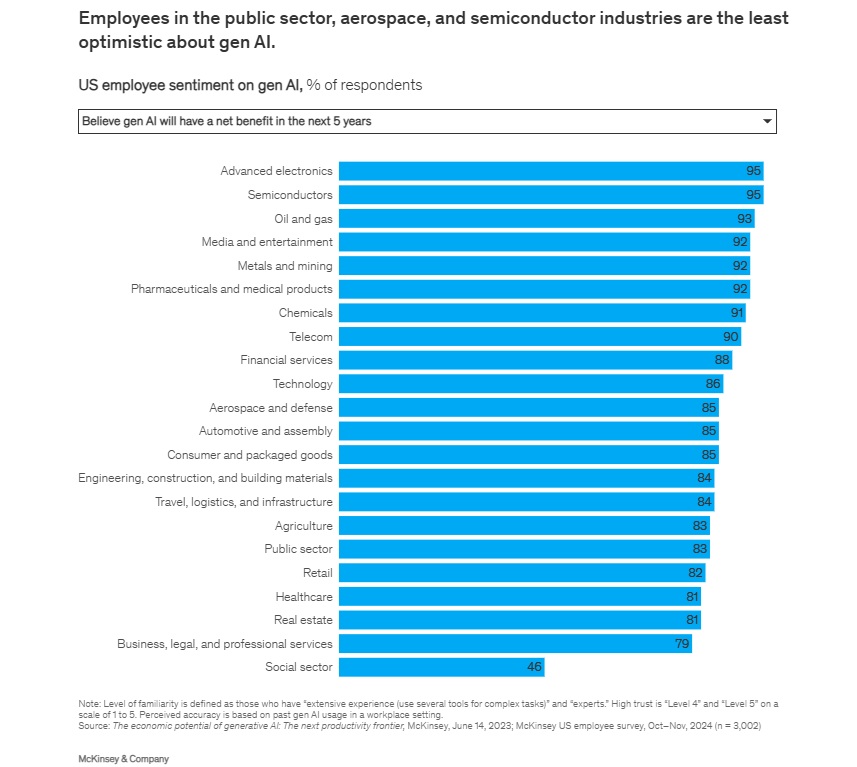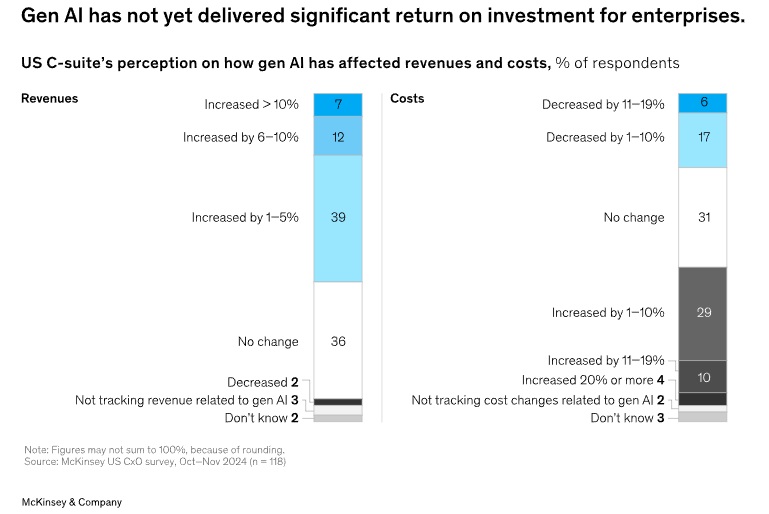With AI Maturity at 1%, Employees Ready, Leaders Hesitant, Benefits Untapped - McKinsey Report

In January 2025, McKinsey & Company—a renowned global management consulting firm—released a report titled "Superagency in the Workplace: Empowering People to Unlock AI’s Full Potential." The study delves into the current state of artificial intelligence (AI) adoption in businesses, revealing that while 92% of companies plan to increase their AI investments over the next three years, only 1% consider their AI initiatives to be fully mature. The McKinsey report is quite detailed and extensive, but here are our key takeaways.
Key takeaways:
Employee Adoption vs. Management Perception: The report uncovers a significant disparity between employee readiness to adopt AI and management's perception of this readiness. Employees are reportedly three times more likely to use AI extensively than leaders anticipate. Furthermore, 70% of employees believe AI will transform 30% of their work within the next two years, yet only 20% of leaders share this expectation.

Anticipated Benefits Across Industries: Different sectors foresee varying advantages from AI integration in the coming five years. For instance, the financial services industry expects AI to enhance risk assessment and customer service, while the manufacturing sector anticipates improvements in predictive maintenance and supply chain optimization. These projections underscore the tailored approaches industries are considering to leverage AI effectively.

Management's Current Belief in AI Benefits: Despite the enthusiasm for AI's potential, there exists a cautious outlook among management regarding its present benefits. Company leaders estimate AI-driven benefits—such as revenue growth and cost savings—at around 20% each, highlighting that AI is far from fully integrated to drive significant business impact. This suggests a need for more robust strategies to bridge the gap between AI investment and realization of its full benefits.

Despite AI's vast potential, a recent McKinsey report reveals that the industry is only at 1% maturity, with employees showing greater enthusiasm for adoption than management. While leadership remains hesitant, workers are eager to integrate AI into their daily tasks, seeing its potential to enhance productivity and efficiency. Over the next five years, industries expect significant benefits from AI, particularly in automation, decision-making, and customer engagement. However, many executives still struggle to recognize the tangible advantages AI is already bringing to their businesses today. This gap between perception and reality highlights the need for stronger leadership alignment and strategic implementation to unlock AI’s full potential.